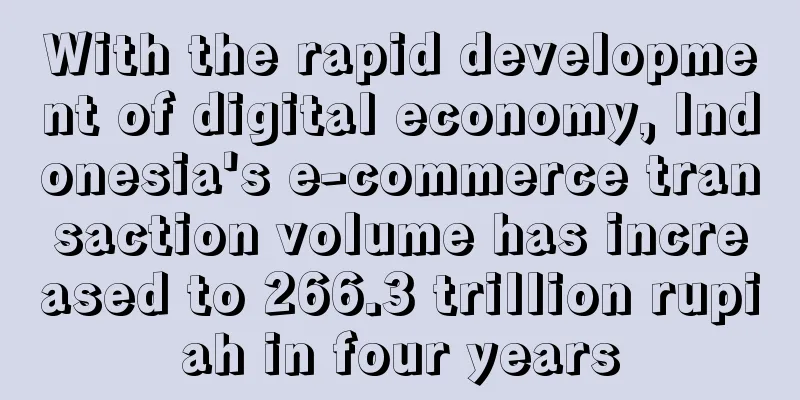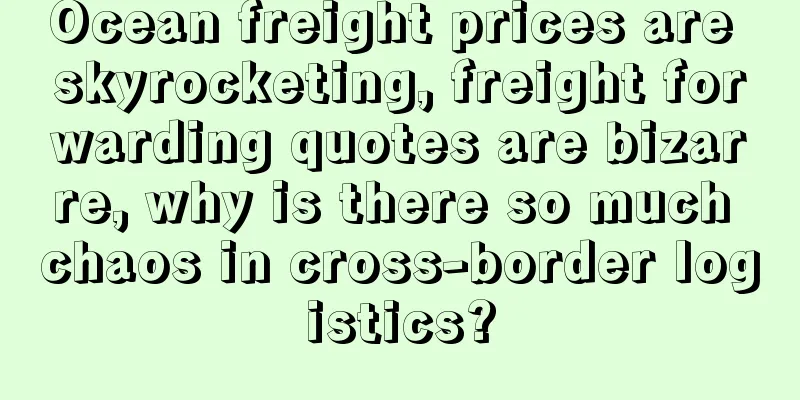With the rapid development of digital economy, Indonesia's e-commerce transaction volume has increased to 266.3 trillion rupiah in four years

|
The emergence of e-commerce in Indonesia has enabled many Indonesian residents to buy desirable goods without leaving home, but this transformation is a major challenge for traditional shopping malls, whose merchant occupancy rate is getting lower and lower. According to the e-Conomy SEA 2020 report released by Google and Temasek , Indonesia's e-commerce GMV is expected to grow 21% from 2020 to US$83 billion between 2020 and 2025. In recent years, the development of e-commerce in Indonesia has indeed been rapid and remarkable. During the period from 2017 to 2020, the transaction volume of e-commerce in Indonesia increased from 42.2 trillion rupiah to 266.3 trillion rupiah. In just four years, the transaction volume increased sixfold. A survey conducted by Statistics Indonesia showed that the highest distribution of e-commerce users in Indonesia is in Jakarta, accounting for 58%. This also shows that Indonesia's e-commerce is developing fastest in large cities, because large cities have sufficient facilities and infrastructure support. Data shows that between 2017 and 2020, Jakarta's e-commerce transaction volume increased fivefold from 24.48 trillion rupiah to 154.45 trillion rupiah. The chairman of the Indonesian E-Commerce Association ( IDEA), Bimalaga, stressed that the e-commerce industry will continue to work hard to support and encourage the products of Indonesian micro and small and medium-sized enterprises to go global. Because now many Indonesian e-commerce platforms have begun to go global, including Traveloka and Bukalapak . It can be seen that the development of Indonesia's e-commerce platform is no longer limited to Southeast Asia, and now there are more ways to go global. This idea of encouraging going global not only promotes the development of e-commerce in the country, but also encourages other countries or regions to utilize and develop digital technologies and accelerate the digitalization process. Not only that, the Indonesian government has also developed the Indonesian Proud Manufacturing Initiative ( BBI) to promote MSME products. The Indonesian E-Commerce Association will also continue to encourage e-commerce in Indonesia and provide special tools to promote Indonesian MSME products . However , in the past year, in addition to accelerating the pace of e-commerce going global, the Indonesian government has also been working to strengthen e-commerce regulations to manage the industry. As the Indonesian government strengthens its control over Southeast Asia’s digital economy, several e-commerce regulations implemented on Indonesian e-commerce platforms may burden the industry in 2021. Cross-border e-commerce market Southeast Asia |
<<: European cross-border e-commerce sales reach $146 billion
>>: Philippines' Kwik.insure launches online insurance marketplace
Recommend
Three injuries were caused and nearly 140,000 products were recalled
Those who pay attention to the CPSC will know tha...
What is Lebao Logistics? Lebao Logistics Review, Features
Shenzhen RUSHBOX Co., Ltd. (RUSHBOX) ("RUSHB...
What is Shared Shipping? Shared Shipping Review, Features
Shared Delivery is a platform under New Harvest (T...
Nearly 40,000 toys were inspected, and Chinese manufacturing suffered another blow
The Madrid government reported on Wednesday that ...
29 new commodity tax items added, cross-border e-commerce preferential policies further enriched
Against the backdrop of the intermittent epidemic...
What is Icyzone? Icyzone Review, Features
Icyzone is a young brand specializing in yoga and ...
What is YouGov? YouGov Review, Features
YouGov is an international online research data a...
What is wudang-store? wudang-store Review, Features
wudang-store is an online store started in 2012, s...
Sports equipment is hot in the US, with sales up 19% in the first quarter
According to NPD, U.S. spring sports equipment re...
Resale platforms expected to see continued growth in 2021
The fashion industry seems to be undergoing a maj...
What is Klear? Klear Review, Features
Klear (formerly known as Twtrland) is an influence...
What is kleankanteen? kleankanteen Review, Features
kleankanteen is a family-owned business on a missi...
What is App Annie? App Annie Review, Features
App Annie is the industry leader in data analytic...
What is Beddinginn? Beddinginn Review, Features
Beddinginn is one of the leading suppliers of bed...
Official announcement! Alibaba International Station becomes the official B2B e-commerce partner of the 2024 European Cup
The European Cup will start in 10 days , and Alib...









